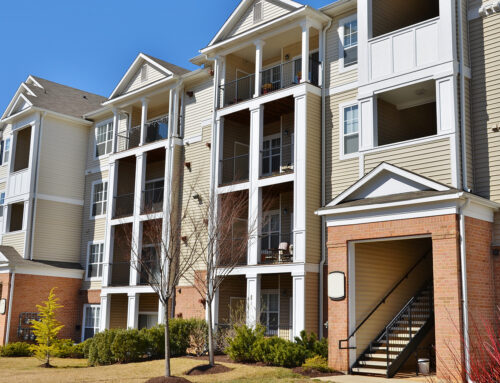Co-Ops
At Total Mortgage, we offer mortgages on Co-Ops, contact us for specific details.
What’s a co-op?
A housing cooperative is a group (usually a corporation) that owns a piece of real estate, like an apartment building. Instead of buying a specific unit in a co-op building, you have to purchase a share of the corporation, which then grants you a proprietary lease on a unit in the building. As a shareholder, you are partially responsible for maintenance fees and property taxes, and own common areas (like hallways) jointly.
Why is a co-op mortgage different?
A traditional house (or a condo) has a deed, which is signed to a lender when you secure a mortgage.
But—you guessed it—co-ops are a little different.
Individual units don’t have deeds; there’s just one of those for the entire building. A co-op mortgage is actually a “share loan,” or a loan that lets you purchase a share in the co-op. This difference makes securing a loan for a co-op a little trickier than a getting a traditional mortgage, since fewer lenders offer share loans.
How is a co-op different from a condo?
What you own. In a condominium complex, you own a specific unit (well, the surface of the interior walls of the unit and the space they contain). In a co-op, however, you own a share of a corporation, which then entitles you to a unit. This share is considered personal property rather than real estate.
To buy into a co-op, you must be approved by the co-op board. The approval process is often extensive, and may require interviews and character references, in addition to your employment, financial, and credit history. Co-op boards can refuse a prospective buyer for any reason, so long as it doesn’t run afoul of anti-discrimination policies.
Co-ops are very common in New York City and a few other major cities, where they arose as a result of rent control laws.
What you can do WITH your unit. As a co-op shareholder, you don’t have the right of alienation—basically, you can’t sell your share (or rent your unit) without the permission of the co-op board. Some condo associations have the right of first refusal, meaning they have the option to buy the property before you offer it to outside buyers. Co-op boards, though, can simply deny a sale without matching the sale price.
What you can do TO your unit. Co-ops sometimes have extra restrictions on unit renovation/alteration. This varies from co-op to co-op.
How you pay your taxes. Co-ops also have different tax and insurance implications. We advise consulting a real estate professional to determine how these differences could impact you.
PLEASE NOTE: LOAN PRODUCTS AND THEIR GUIDELINES CAN CHANGE AT ANY TIME.
DISCLAIMER: This is not an offer to make a loan or to make a loan on any particular terms. All loan applicants must qualify under underwriting requirements and satisfy all contingencies of loan approval. Rates and terms subject to change without notice. Total Mortgage Services, LLC NMLS ID # 2764 (www.nmlsconsumeraccess.org)



